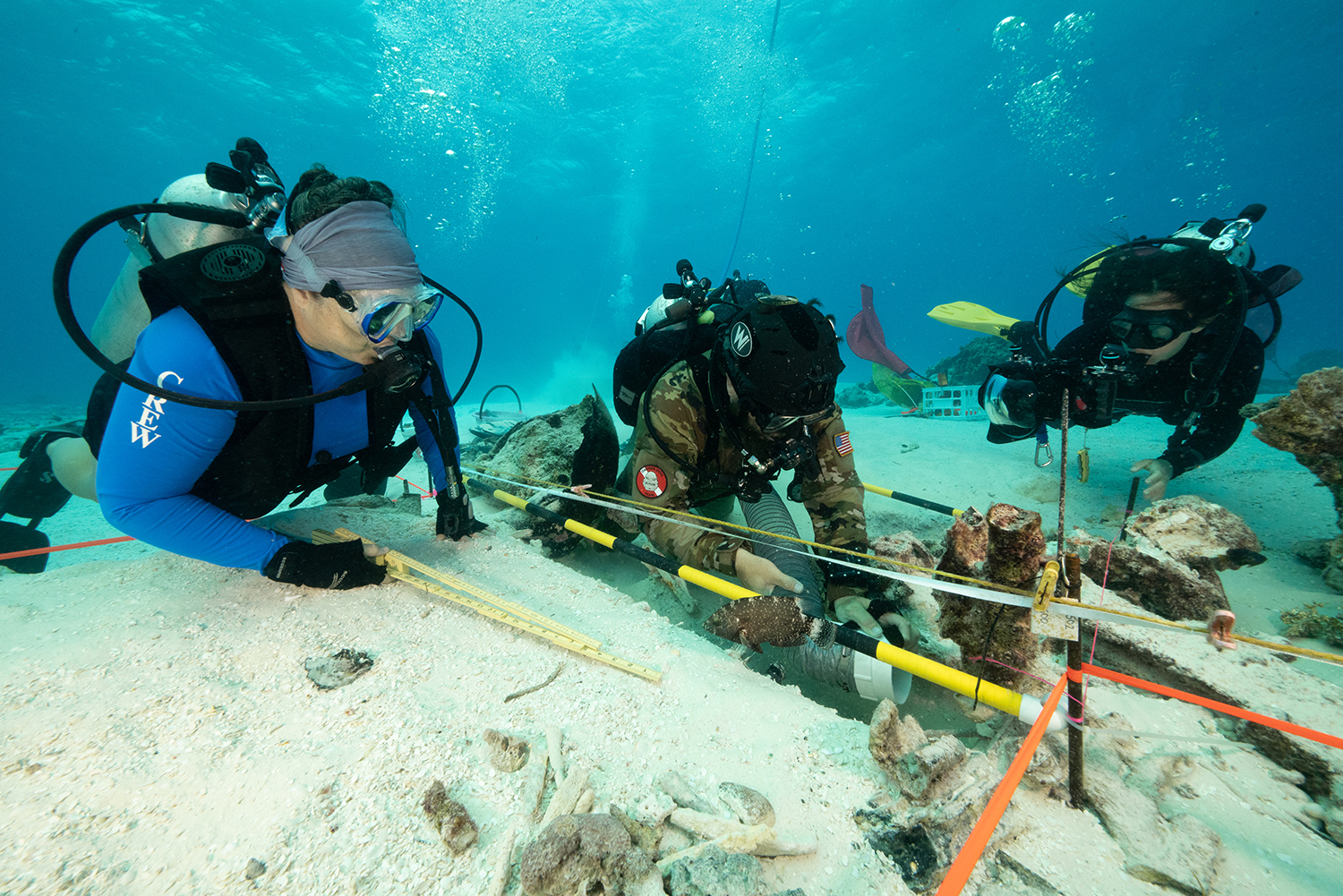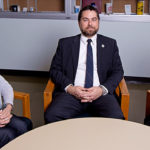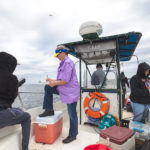Veterans and archaeologists search for missing WWII personnel
In June 1944, U.S. forces launched an amphibious assault on the island of Saipan. During that assault, 22 F6F-3 Hellcat aircraft were lost. At least three of those aircraft went down near Tanapag Harbor, Saipan. The aircraft and pilots remain unaccounted for. Efforts began last week to continue the search for the aircraft and to provide the fullest possible accounting of the pilots to their families and the nation.

In June 1944, U.S. forces launched an amphibious assault on the island of Saipan. During that assault, 22 F6F-3 Hellcat aircraft were lost. At least three of those aircraft went down near Tanapag Harbor, Saipan. The aircraft and pilots remain unaccounted for. Efforts began last week to continue the search for the aircraft and to provide the fullest possible accounting of the pilots to their families and the nation.
The Florida Public Archaeology Network, a program of the Division of Anthropology and Archaeology at the University of West Florida, recently teamed up with East Carolina University’s Program in Maritime Studies to continue work to locate, identify and return these missing pilots to their families. In partnership with the Defense POW/MIA Accounting Agency, Dr. Jennifer McKinnon, chair and associate professor in the Department of History, Program in Maritime Studies at East Carolina University in Greenville, North Carolina, led a team of archeologists, divers, and other specialists from around the U.S.
Dr. Della Scott-Ireton, FPAN associate director, and Nicole Grinnan, public archaeologist for FPAN’s Northwest Florida region provided underwater archaeological training.
“We [the Florida Public Archaeology Network] were honored to be tasked with providing initial underwater archaeological training to the veterans volunteering for the project through the Task Force Dagger Special Operations Foundation,” Grinnan said. “All of the individuals we trained and worked with brought their experience, motivation and expertise to the mission at hand; we truly could not have done a project of this scale without them. From daily tasks to site analysis, these veterans played an integral collaborative role alongside the project archaeologists.”
A group of former U.S. Special Operations Forces members from the Task Force Dagger Special Forces Foundation were also a part of the team. The Foundation provides rehabilitative therapy programs for former Special Operations Forces soldiers and their families. Soldiers participate in planning, diving, and data processing, and have partnered with ECU since 2017.
The non-profit organization Ships of Discovery also participated in the mission. The mission lasted approximately 30 days and concluded early this month.
For more information about the Florida Public Archaeology Network, visit uwf.edu/fpan.



